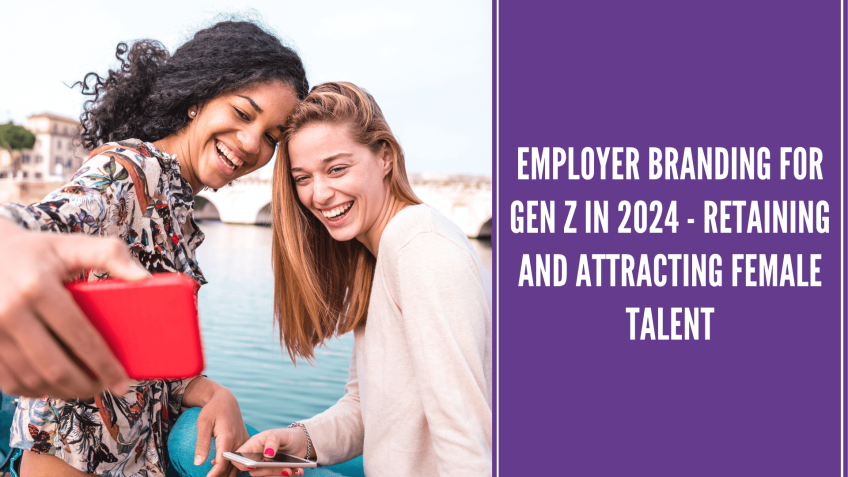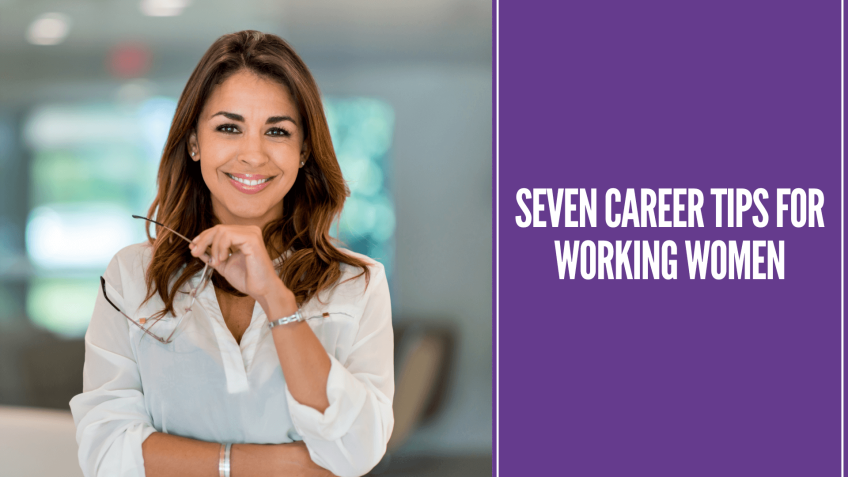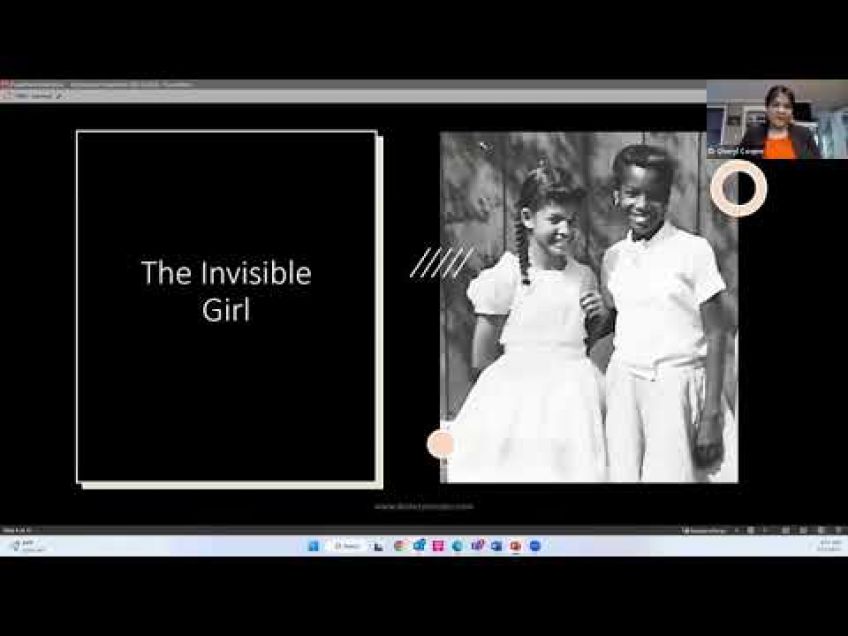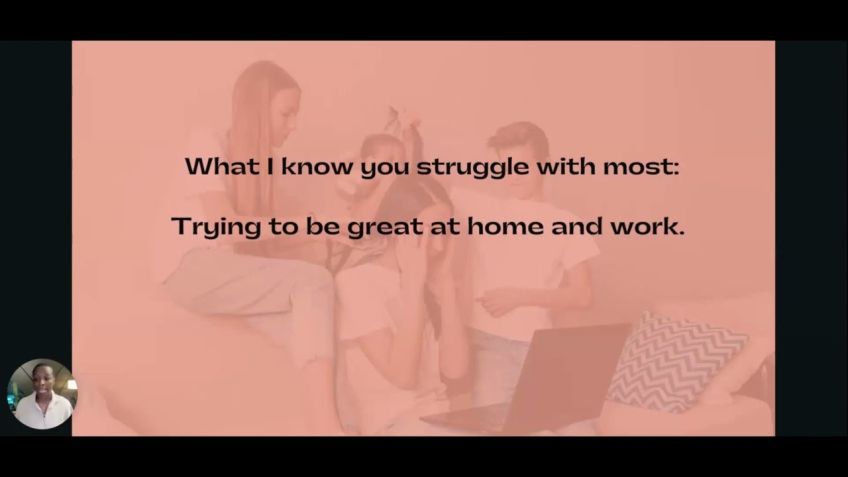Our DEI journey; how we tapped into our superpowers. by Maya Appiah Veronica Villegas
Meet Verizon Villegas and Maya Apia: Shaping Diversity, Equity, and Inclusion at Amazon
Veronica Villegas, Senior Program Manager of the Internship Program at Amazon, and Maya Apia, Leader of the Diversity, Equity, and Inclusion team at Amazon, share insights into their professional backgrounds, their superpowers, and the initiatives they lead in this exciting conversation. Engage with them as they discuss and dissect their experiences, ranging from their personal backgrounds to laying out their visions for promoting diversity, equity, and inclusion in one of the world's largest corporations.
A Pioneering Conversation on Diversity, Equity, and Inclusion
Veronica Villegas and Maya Apia, two leaders in a global corporation in the tech sector, are focused on creating a more inclusive workplace at Amazon. Their conversation touches on their "superpowers", their professional journey, and their commitment to making the corporate landscape more accessible and diverse.
About Veronica Villegas
Veronica Villegas, currently leading the Internship Program at Amazon, pinpoints her success in bridging her different career experiences - be it military, entrepreneurship, or human resources - to land in talent acquisition. Her diverse professional journey, however, was driven by one core value - creating an impact on society. Today, she leads an innovative program at Amazon that enables professionals who have been unemployed or underemployed for one or more years to restart their careers.
About Maya Apia
Maya Apia, presently at the helm of the diversity, equity, and inclusion team at Amazon, reflects on her journey from supporting women leaders across the developing world in the nonprofit sector to altering tech sector's recruitment mechanics. Maya's "superpowers" lie in pushing the status quo, building trust with marginalized communities, and ensuring a holistic and inclusive candidate engagement strategy at Amazon.
Motivated by Impact, Driven by Experience
Drawing from their personal and professional journeys, both Veronica and Maya emphasize on the underlying value of diversity, equity and inclusion in their roles at Amazon. The conversation brings forth Veronica's personal journey of adjusting to new professional terrains, her willingness to embrace risk, and her immense satisfaction in working that directly impacts society. Similarly, Maya's reflections provide an illustration on how a strong sense of curiosity about tech led to revealing access discrepancies in tech recruitment, which in turn propelled her towards her work at Amazon. Their conversation reiterates that diversity, equity, and inclusion initiatives are central to driving innovation and productivity in today’s corporate world.
Conclusion
Through frank conversations sharing their personal journeys, both Veronica Villegas and Maya Apia shed light on the value of diversity, equity, and inclusion in the professional sector. They demonstrate how creating an inclusive space is not merely a corporate responsibility, but an individual one as well, and how every initiative taken can significantly contribute to a more equitable world.
Video Transcription
Hi, everyone. Uh my name is Veronica Villegas and uh with me is Maya. Uh Good morning, good afternoon, good evening. Wherever you're logging in from, I'm currently located in New Jersey, so it's 4:32 p.m. here on this side.Um I am the senior program manager of the internship program at Amazon and uh with me is Maya Apia. She leads the diversity equity and inclusion team at Amazon and she previously led the inclusive hiring function at Microsoft. Uh We're super excited to discuss our professional background.
Um Tell you what we consider to be our superpowers and initiatives that we each lead at Amazon. Um Just for some expectations, this conversation is going to be super informal. Uh So we encourage you to ask questions in the chat um that we work. We, we will try to answer as we engage in the discussion. Um Maya, I'm gonna turn it over to you. Uh Just we wanna learn from you, tell us about your professional background, um specifically your de I uh journey and uh your superpowers and how to uh how does the work that you do impact the work um That, that, that you do at Amazon just from a, from a broad scale.
Yeah, totally. Well, thanks for, for being here, everyone. I'm really looking forward to this conversation and, and like Veronica said it, we wanted to be just about a conversation. So invite you to add your comments and questions just as we're talking to. Um in terms of my journey, I am um the daughter of immigrants um who are Indian via East Africa. So come from a long line of immigrants and, and entrepreneurs was lucky enough to be raised in, in southern California and in beautiful San Diego. Um But because my family is spread out all over the globe, my main objective when I went to school was let me find a job that will pay for my travel habit, thought I might join the foreign service because of that and, and become a diplomat um as my sort of academic and, and early career evolved, I found myself um kind of pivoting away from, from that space uh landed in the nonprofit sector um supporting an organization called Vital voices that works with women leaders across the developing world.
And it was an awesome experience because it really helped me learn from so many different examples of women's leadership from literally every corner of the globe. Um And really what, what was similar across all of these leaders too was that they were so deeply rooted in their communities.
Um And really um understanding sort of the, the dynamics of all of the different key players in their environments. And it's something that I've strived to sort of embody myself as, as I think about my own leadership journey. Uh flash forward a few years, I was in Washington DC doing that work and, and getting to travel. So still got that box checked um off my list. Um But I wasn't necessarily sure that the nonprofit sector was, I, I started to become convinced, OK, maybe this isn't the only place to have social impact. And I'm a very purpose driven person. And so that was really important to me was having, you know, being doing work that I felt like was making the world a better place. Um But I kind of realized, hmm maybe there's some other avenues I should explore to be able to have that impact. Um This was at a time that tech was just getting flooded with resources, VC funding really smart people hiring like crazy. And it sort of said there's gotta be something going on there. But I was also kind of perplexed because I felt like the tech sector broadly was producing a lot of products and services that didn't necessarily make the world all that much better.
Um And so I was sort of perplexed at like, why do we need like so many laundry delivery services and apps that say, yo, when we have all these other technologies to communicate. Um And it it got my wheels turning. And so my agenda was then to say, let me enter the tech sector and see if I can influence the way that these what, what products and services come to market. Um And, and just get a better understanding of what's driving those decisions. I ended up landing at, at linkedin um and really consulting at that time with talent acquisition teams on how to use our linkedin products better. Um And a few light bulb moments happened for me. Then I realized getting sort of a an inside a view into AAA growing tech company at the time linkedin was about 12,000 employees. And I got to, to partner closely with our product teams and that's where the light bulb moment kind of went off for me was oh, the people who have access to building major product road maps, who's in the room when that decision is being made of what, what product or feature gets prioritized, who has access to VC funding when it comes to start ups?
Those were the questions that I started asking and realizing that diversity equity and inclusion work was really for me all about creating that access, access to those companies, access to jobs at those companies, access to advancement, opportunities at those companies to be able to do that, access to a network that unlocks funding opportunities, et cetera.
And so that's really a guiding force for me in terms of how I think about de I work, it's about creating access. And um you know, my, my journey since then has evolved to Microsoft and now I'm about seven months into my journey at Amazon, but I really hope to be doing work. Our, our team sits in diversity equity inclusion in talent acquisition specifically. And so I just feel really lucky to be working for um uh one of the largest employers literally in the world and working to create access for more people to economic opportunity via careers at Amazon.
Uh A, a question I have for you, Maya is um have you always been in talent acquisition? And how did you make your way into talent acquisition?
Yeah. No, I am the first time I worked with a recruiter or like really understood what a recruiter's job was, was when I was getting recruited to work at linkedin. So, no, definitely did not. Uh sort of have my eyes set on talent acquisition, it landed there sideways. Um And so when I was at linkedin, as I mentioned, my, my kind of key clients were talent acquisition leaders and I got to work with them to understand. OK, what's your business strategy? What are your business goals? Therefore, wait a minute, what kind of talent do you need to be able to make good on those business objectives? Um And so that was kind of my, my first foray into T A was, was through my linkedin experience.
Interesting and what, what would you say are your superpowers? Hm.
Yeah, I love this question, Veronica and I want to ask the same of you too. Um I think I was, I was giving this some thought in advance and I wanted to frame it in um Amazon's leadership principles. Amazon's leadership principles are really for those who are, are outside of our company. Um These are really the guiding force like they're more than just writings on the wall or, you know, broad vision statements. This is really embedded into like how we operate, how we collaborate, how we make decisions. Um And so when I think of two of our leadership principles that, that stand out to me as, as hopefully superpowers, if, if not things that I would aspire to have, be my superpowers, it's this idea of thinking big. Um And what I mean by that is I'm someone who's um typically dissatisfied with the status quo. And I think particularly in the de I space, we have um major opportunity and frankly, we're a little bit behind in terms of raising the bar on what inclusion really looks like in corporate spaces.
Um And I think we've sort of when, when I think of the work that some of the major tech companies in the world do we innovate in all of these other places? But we've been a little bit slower when it comes to diversity, equity and inclusion work. And so my aspiration is to, to help the company think bigger about what we can do to, to really um to, to strive to be the earth's best employer. Um which is another, another LP leadership principle. And the second one I think about is I don't love the phrasing, but this leadership principle is called, are right. A lot like the idea of leaders being right a lot. And at first, I was like, that sounds kind of rude, kind of egotistical. And then I, I dug into the definition a little bit more. And to me, what this leadership principle is about is trusting your gut and then actively working and, and proactively seeking out diverse perspectives to discon confirm your beliefs. And so I love that idea because certainly I uh I became a mom just less than two years ago as you know, Veronica. And um my toddler has really tested me sometimes and I've realized I've got to sometimes just trust my gut instinct because there is no playbook for this whole parenting gig.
Um But I also really like this idea embedded in our write a lot, which is how can you make sure how can you be confident in the decisions that you're making part of that is thinking about who's in the room helping you make that decision with you, right? Whose feedback and perspectives are you taking into account? Are you really thinking about all the broadest customer, customer or stakeholder base possible? Um as you make those decisions. And so that's something that is a good reminder for me too. Um Particularly doing de I work is who, who are the folks that are gonna be most impacted by these decisions or, or who doesn't have a seat at the table? And we've, we've got to do our job to, to create access for that group. What about you? Tell me about your superpowers?
Uh Yeah. So let me tell you a little bit about my career, which um I think it's very similar to you in uh multiple senses. So I, I am also a, an I was raised uh or I'm an immigrant myself. I, I moved to United States when I was eight years old. Uh But, and then also my parents are also both entrepreneurs. Uh But my professional career specifically has not gone in a straight line uh as I would have envisioned when I graduated uh college. Uh In fact, I like to joke that I've uh that I've had careers uh worth multiple lifetimes. Uh My, my, my experience spans the government entrepreneurship and public sector. I'm actually a military veteran. I served in the army for eight y eight years right out of college uh in the reserve component. So, while I served in the military on a part time basis, I was also a part I civilian working for a Fortune 500 company in an hr uh generalist capacity. Um after multiple years in hr I decided to take the leap of faith and become an entrepreneur. I wanted to be like my parents. Um and I developed a jewelry uh distribution business uh from the ground up and um between uh China and the Dominican Republic, both countries that are foreign me. And uh within three years, we build a business from zero, from distributing to zero stores to over 400.
And that's where I had my light bulb moment. Uh If you will, I realized uh at the, at the top of my career when we were very successful and, and, and, and we were distributing to almost the entire country. I realized that um I wasn't happy. I um I, by that time I had been to Iraq and little did I know my purpose had shifted. Um like you, uh I'm very uh purpose driven. So I learned a very important lesson that completely changed the uh uh the approach to my career. I realized at that moment that my business um although was making a lot of money, that was not my, my motivating factor. Um I wasn't, I wasn't happy with, you know, with what I was doing. So I decided to sell my business. I decided to pack my bags, come back to the States. I did my MB A and um here I was, you know, I had all this experience in different sectors. Uh And then I had an MBA, I decided to go into talent acquisition um because I wanted to explore different careers and I thought that was the front seat uh to be able to do that. And uh and during the five years, iii I worked at Verizon. During those five years, I got promoted every year and I was, and then III I finished leading the military recruitment team and uh military strategy and programs for, for uh the entire horizon.
And that, that experience was so fulfilling because I was creating an impact on society and on veterans' lives. And that's when I realized that this is what I wanted to do. I wanted to stay in talent acquisition. I wanted to be able to change the narrative and I wanted to be able to uh to uh to continue advancing um you know, the programs that impact society. Um And so after five years, I decided to take the leap of faith and jump to Amazon because I know that Amazon, which with its uh huge scale, uh I was gonna be able to, to continue impacting society. So at Amazon, I lead the, the internship program and for those of you that don't know, the internship program is a program that was created in uh in 2021. Uh And it's to provide a low risk environment and clear path to restart the careers of professionals who have, who have been uh one or more years who have one or more years of unemployment or underemployment. And, uh this, this program, uh, like you said, Maya really reflects Amazon's commitment, uh commitment to hiring and developing a more diverse workforce.
Um And so, uh, what we learn is that the average returner has been out of the workforce for six years and has a less than 10% chance of, uh getting a job offer after two, after 22 years of being unemployed. And in fact, the majority of those that, that um the majority of returners are women. And what we see is that uh 3.5 times um women are more likely to leave the workforce because they want to take care of their families. And so they cite caregiving as, as the reason why I uh they left the workforce. And so for me, as someone who also left the workforce and, and had a hard time finding my way back, this was a perfect fit um with, with my values and it really aligned well with what I was looking to do moving forward. And so to answer your questions, I think my super, my biggest superpowers are that like, think big. Um uh And, and then also, I just, I I think that being my authentic self and being able to really um take from my experiences, um what I've learned um to be able to make decisions and be able to drive the whole program program forward has really been my superpowers, but more more, more than anything is being my authentic self, which is not easy sometimes.
But, um I think to, to, to, um, the, the, the Amazon's leadership principles, which is, you know, I write a lot. Um, that definitely helps, um, because I have a voice at the table and I'm able to really uh make decisions and defend my decisions based on what I see. And so I know that's, that's like a long answer to your question.
I love it though. I love it though. And, and I love the idea of like authenticity in that idea of our, right? A lot too, right? It's people don't hold back here, right. There's no sort of politeness for the sake of politeness. It's, hey, we hire really smart people. We, we hold the bar really high because we, we feel like we have to leverage every single person's immense brain power, right? To solve the, the really, really sticky
issues in front of us. So, yeah, yeah, I have a question for you. As you know, there's so many um initiatives across, across the, the marketplace in the, in the en I, what makes, um, just tell us a little bit about what your vision is and uh and some of the work that you're doing around that vision.
Yeah, totally. I, I love it. I think the um uh my approach for de I is to take as much of a connected and holistic approach as possible. I believe that change starts from within. So our team has a real focus on enabling our recruiting teams to be thoughtful and inclusive in every single candidate engagement. It means scrutinizing our recruiting systems and processes and tools to ensure that we're not unintentionally excluding anyone from our, our, our processes from, from becoming part of our talent pipelines. Um And I also think we need to take a long term view, right, Amazon. Um and most of the tech industry, I I would say has a lot of trust building to do with a lot of historically marginalized communities and that trust isn't earned overnight and it absolutely needs to be earned. And so I think part of the investments that, that our team has made is to say, how can we start collaborating and take a partnership driven approach to earning trust and that's got to be work that happens over, you know, the next now to 3 to 5 and kind of ongoing work that, that takes place.
It's not gonna be overnight. There's no silver bullet solutions um as it relates to DE I and in the talent acquisition space, that's something that we get challenged on a lot, right? Is, oh, the T A team will handle my DE I goals for me. Um That's a, that's a common misperception across uh the industry really. And so it's something that we've got to be proactively influencing is how do we uh help Amazon understand that it's every individual's responsibility and our collective responsibility to society to do better as it relates to our, our de I work.
Awesome. Thank you for that work you're doing. Um Maya, I'm, I'm super excited. Um It's, it's 450 I think. Uh this panel has ended. So, thank you all so much for joining uh Maya and I, and we're super excited to share our some, a little bit about ourselves.
It's great to meet everyone. Thanks for having us.





